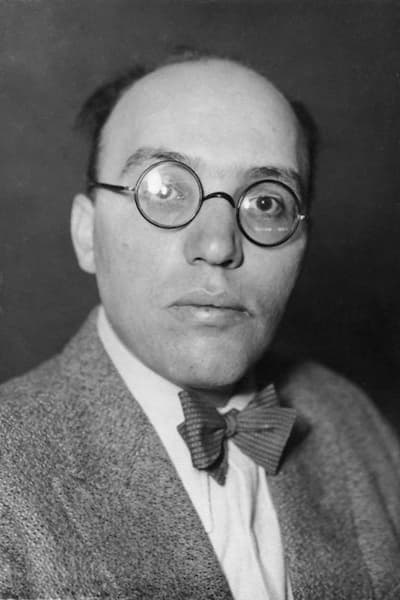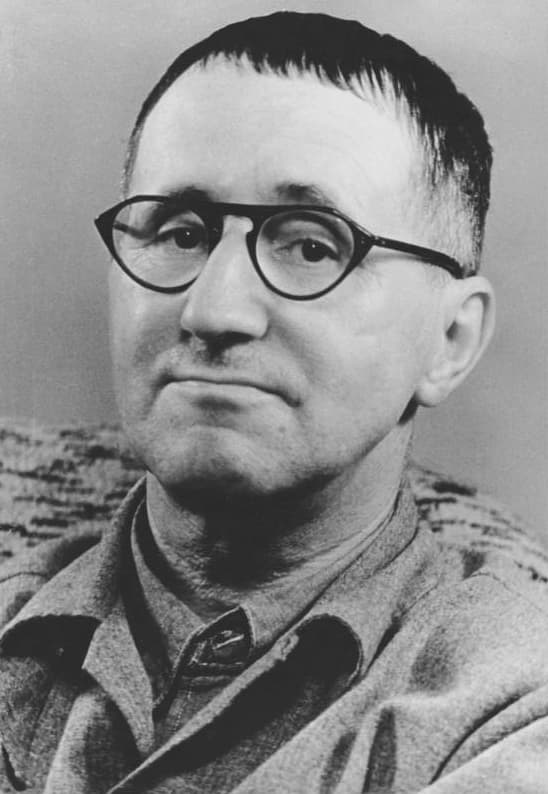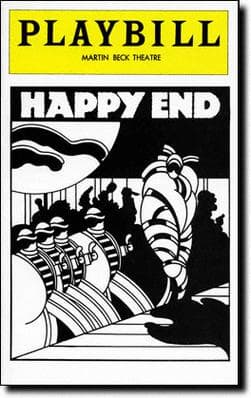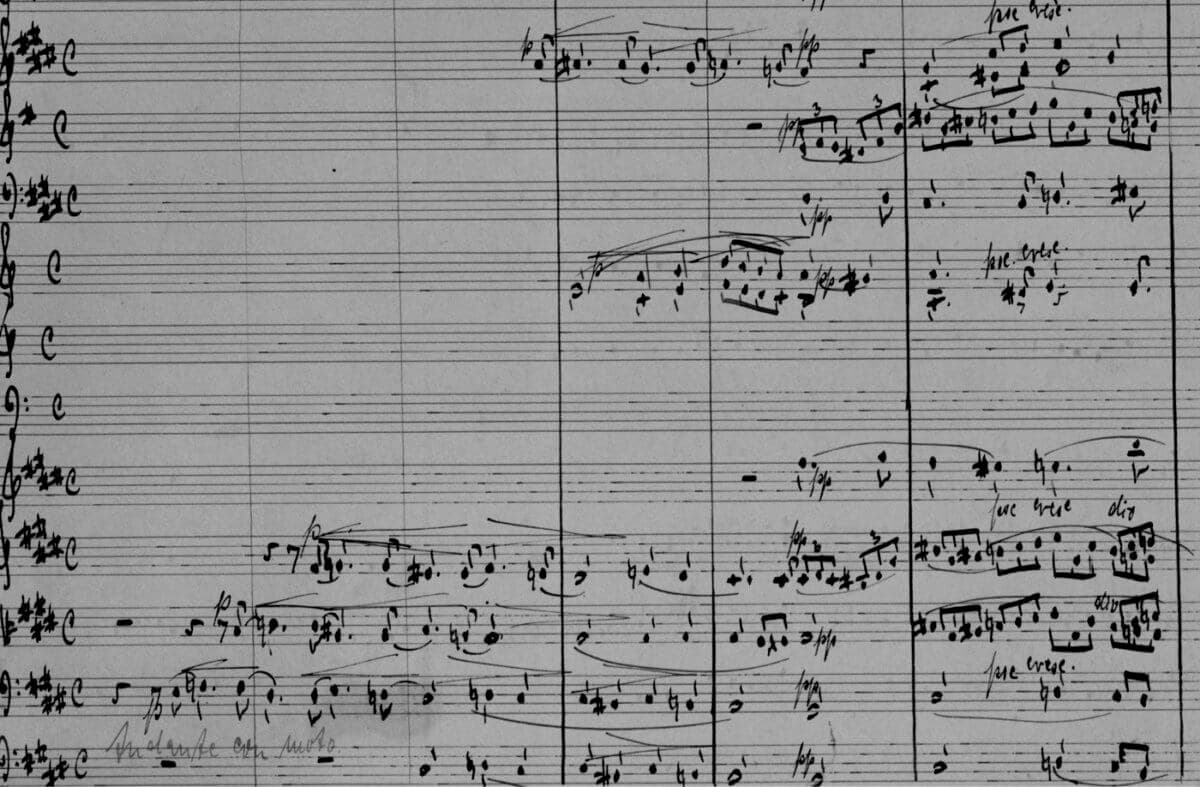The Threepenny Opera, the most famous collaboration between Bertold Brecht and Kurt Weill premiered on 31 August 1928. It was a resounding success with critics and audiences alike. A contemporary critic writes that the work is “the weightiest possible lowbrow opera for highbrows and the most full-blooded highbrow musical for lowbrows.” Looking to capitalise on the huge Berlin success, Brecht and Weill also collaborated on the follow-up Happy End, which opened on 2 September 1929 at the Theater am Schiffbauerdamm in Berlin.
Kurt Weill: Happy End, “Surabaya Johnny”
A Flop

Kurt Weill
For Happy End, Brecht and Weill were looking to repeat the formula of a lively comic play with mass audience appeal, spiced up with memorable songs. The play comes from Brecht’s assistant, Elisabeth Hauptmann, writing as Dorothy Lane, with Brecht taking responsibility for the lyrics and Weill setting the music. In the event, it closed after only seven performances.
Hauptmann’s two-hour text had been compressed into a bare framework of spoken dialogue detailing the strange entanglement between a gang of crooks and the Salvation Army. The music, a dazzling sequence of songs and choruses, is of an extraordinary richness. However, as a scholar writes, “they contribute virtually nothing to the dramatic thrust of the work.” Individual songs, however, would subsequently become hits in their own right, specifically after Lotte Lenya recorded the “Bilbao Song,” “Matrosen-Tango,” and “Surabaya Johnny” in 1955.
Kurt Weill: Happy End, “Das Lied von der harten Nuss” (Gisela May, vocals; Henry Krtschil, cond.)
The Story

Bertold Brecht
It is Christmas Eve in Bill’s Ballhaus in Chicago, with Bill Cracker’s criminal gang discussing past heists. Bill arrives to announce that he has killed his arch-rival, Gorilla Baxley, and the gang celebrates by singing the “Bilbao Song.” The Lady in Gray enters to outline the next robbery, and she asks the Governor, a gang member, to light her cigarette, signalling that he is expendable.
On the street, meanwhile, Lieutenant Lilian Holiday of the Salvation Army leads her soldiers in the song “Obacht, gebt Obacht.” The Army marches into Bill’s and starts a church service. Lilian is ridiculed, but Bill saves her from further insults. When the gang exits, Bill and Lillian have a glass of whisky together, and she hears a gunshot from the kitchen. Lilian makes one last effort to convert Bill, telling him he will go to hell, but he throws her out of the bar.
Kurt Weill: Happy End, “Matrosen Tango”
Act II

Weill’s Happy End Broadway Playbill
At the Canal Street Mission, Major Stone is questioning Lilian’s actions, but he softens after she sings the “Matrosen-Song” again. The police commissioner comes to take a statement about the killing in the kitchen of Bill’s establishment. She claims she can’t remember whether she and Bill were alone in the bar. Bill returns and is angry that Lilian did not give him an alibi.
Lilian eventually confesses to the Major, but he dismisses her. The service begins and Bill returns, drunk. Sam, a gang member, enters and takes a seat, with Lilian urged to give the sermon, but Bill disrupts the service. The Mayor scolds Bill, who demands to see Lilian. The Major calls for another hymn, and the Major admits that Lilian has been expelled. Bill storms out, singing the “Song vom Branntweinhändler.”
Kurt Weill: Happy End, “Obacht, gebt Obacht” (Philip Langridge, tenor; Ian Partridge, tenor; Mary Thomas, soprano; Benjamin Luxon, baritone; Meriel Dickinson, mezzo-soprano; London Sinfonietta; David Atherton, cond.)
Act III

Kurt Weill’s Happy End
The gang, without the Governor who has disappeared, assembles in the bar. The Lady in Gray is giving instructions for the big heist. As the gang departs, Lilian enters for one more try to save Bill singing “Surabays Johnny.” Bill won’t admit that he is moved, but he realises that he has failed his assignment when the Lady in Gray enters and asks him for a light. Lilian resolves to return to the Salvation Army, and when the gang enters, they realise that Bill has failed to pick up the loot. It is decided that Bill must die before he can blow the whistle on the gang.
Back at the Salvation Army, the commissioner returns to arrest the gang for bank robbery and Bill for murder. As midnight strikes, the Lady in Gray walks in and points her gun at Bill. However, one of the Salvation Army members recognises her as his long-lost wife. She donates the money to the Salvation Army as Bill and Lilian announce their engagement, and the gang decides to take over the bank they’ve just robbed and merge it with the Salvation Army.
For more of the best in classical music, sign up for our E-Newsletter
